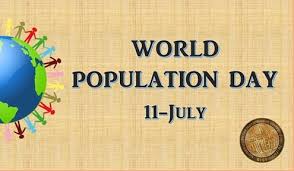
World Population Day is observed on 11 July every year to raise awareness among people about the impact of a growing population and issues including gender equality, the importance of family planning, poverty, maternal health, human rights, etc.
Daily Current Affairs Quiz 2020
Key-Points
According to UNFPA, this year it focuses on how to safeguard the health and rights of women and girls now and putting the brakes on COVID-19.
UN Council every year decides the theme of World Population Day but in 2019 specific theme is not decided and calls for global attention to the unfinished business of the 1994 International Conference on Population and Development.
The main goal of this day is to focus the attention of the world on the importance of population issues.
It was established by the then-Governing Council of the United Nations Development Programme in 1989, an outgrowth of the interest generated by the Day of Five Billion, which was observed on 11 July 1987. The Day was first marked on 11 July 1990 in more than 90 countries.
Current estimates indicate that roughly 83 million people are being added to the world’s population every year.
Even assuming that fertility levels will continue to decline, the global population is expected to reach 8.6 billion in 2030, 9.8 billion in 2050 and 11.2 billion in 2100, according to the medium-variant projection.





